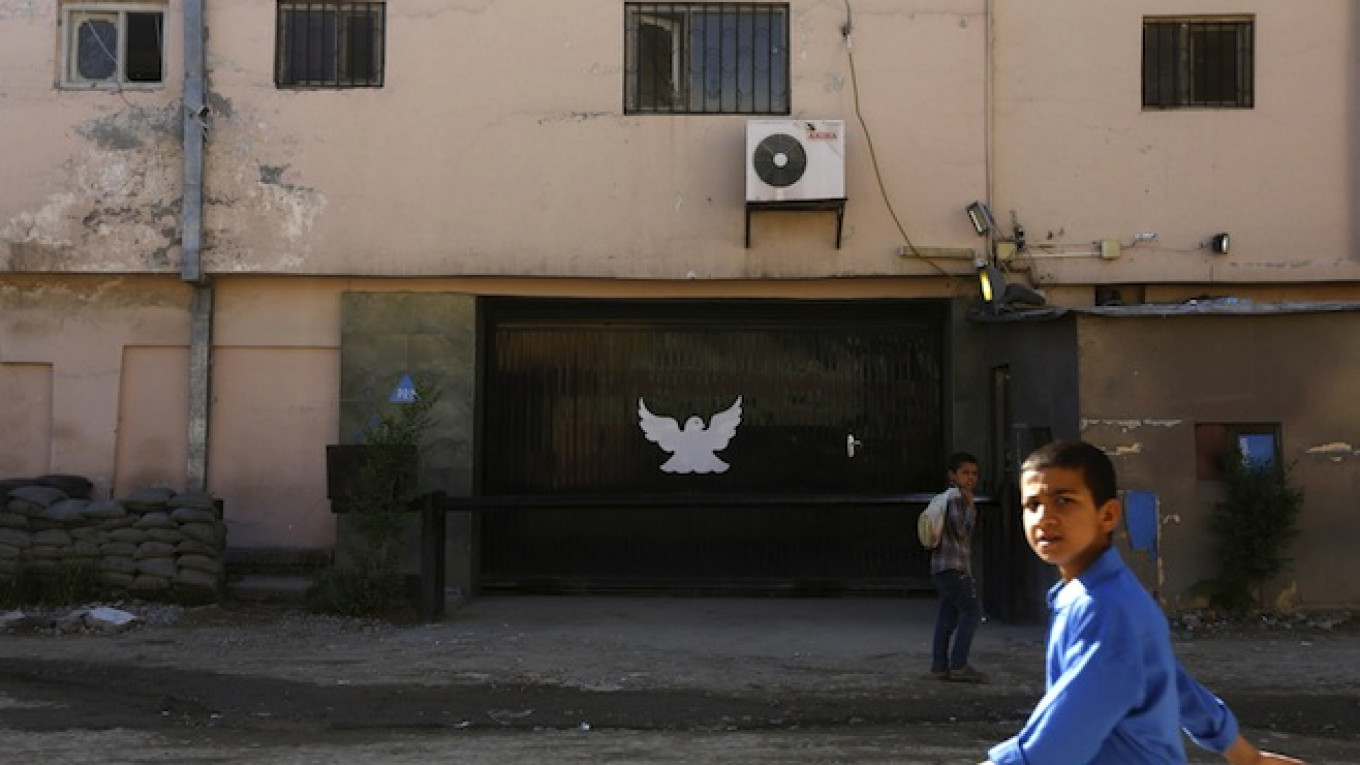Russia has closed a transport corridor that had allowed NATO militaries to deliver supplies to Afghanistan through Russian territory, according to a decree signed by Prime Minister Dmitry Medvedev and published on a government website Monday.
The pathway through Russia had been a symbol of Russia-U.S. cooperation amid otherwise frosty relations between the two former Cold War rivals.
Moscow's decision to close the transport corridor, which NATO used extensively to supply its decade-long deployment in Afghanistan, was made “in connection with the termination of the provisions of United Nations Security Council Resolution 1386,” said the decree, dated May 15.
Resolution 1386 was the 2001 UN Security Council decision that authorized international forces to operate in Afghanistan. Under the resolution, Russia offered NATO forces passage through its territory to Central Asia.
The provisions of the 1386 resolution expired on December 31, 2014, according to another Security Council Resolution, numbered 2120, which was passed in October 2013.
NATO, a Western military alliance, ended its operations in Afghanistan in December, but continues to keep a small military force in the country. It also provides financial and limited material support to the Afghan security forces.
While NATO has not made use of the Russian corridor in recent months, it was once a major supply line for the alliance. Its closure marks the end of an era in Russia's relations with NATO and the United States.
Russian President Vladimir Putin was quick to offer support to the United States following the 9/11 terrorist attacks in New York in 2001 that prompted the invasion of Afghanistan. But relations between Russia and NATO quickly became strained as the alliance expanded in Eastern Europe over Moscow's objections.
During a thaw in relations under U.S. President Barack Obama and Russian then-President Medvedev in 2009, an agreement was inked that expanded NATO's use of the corridor to 4,500 flights a year, saving an estimated $133 million annually on fuel and transport costs.
But the arrangement again came under fire last year as a result of Russia's fallout with the West over the crisis in Ukraine.
In September, Communist Party deputies in the State Duma proposed closing the transit corridor.
Contact the author at [email protected]
A Message from The Moscow Times:
Dear readers,
We are facing unprecedented challenges. Russia's Prosecutor General's Office has designated The Moscow Times as an "undesirable" organization, criminalizing our work and putting our staff at risk of prosecution. This follows our earlier unjust labeling as a "foreign agent."
These actions are direct attempts to silence independent journalism in Russia. The authorities claim our work "discredits the decisions of the Russian leadership." We see things differently: we strive to provide accurate, unbiased reporting on Russia.
We, the journalists of The Moscow Times, refuse to be silenced. But to continue our work, we need your help.
Your support, no matter how small, makes a world of difference. If you can, please support us monthly starting from just $2. It's quick to set up, and every contribution makes a significant impact.
By supporting The Moscow Times, you're defending open, independent journalism in the face of repression. Thank you for standing with us.
Remind me later.


